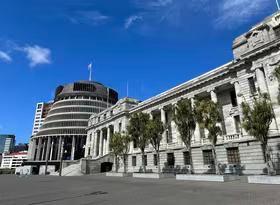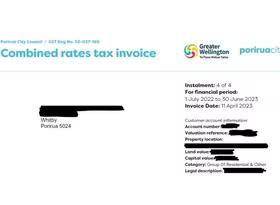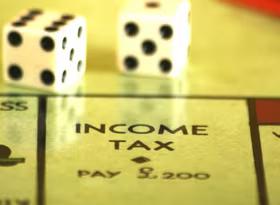How you tax changes people’s behaviour
I’d like to think I’m handy with a hammer, and since becoming a home owner there have been plenty of projects to keep me occupied. Like most DIYers, a big part of my motivation is saving money. On occasion I’ve even taken time off work to finish projects, but does this make financial sense?
The short answer is yes, it can make very good sense. Even though I no doubt work slower than a qualified builder or tradesperson and I don’t get trade rates on materials, it can still make sense for me to take time of the job I’m qualified to do and work in an area I’m less efficient at. How you ask? Due to life’s other certainty: taxes
When you purchase a tradesperson’s time, they have to add15% GST onto the bill. They also pay income tax, which affects the price they are willing to work for (at least the honest ones do).
Depending on their marginal tax rate, full-time workers get to keep as little as two thirds of every extra dollar they earn. So by the time I pay that builder to re-gib the living room, I’ve lost almost half of the price of the transaction to income tax and GST.
The government can’t tax leisure. If I build something myself, I don’t pay a cent in tax (apart from GST on the materials I might use). If I go to work that day, then pay someone else to build it for me I pay a truckload of tax.
I recently got a quote for a wooden deck, but decided to build it myself. I saved over $2,000, even though the deck I built was bigger than what was quoted. It took me the equivalent of around four eight-hour days to build. My return on the time I invested was $500 after-tax a day – not a bad daily rate for most of us.
This issue is not confined to the building sector. Tax acts like a wedge in markets between what suppliers are willing to charge and consumers are willing to pay. Higher tax rates lead to larger distortions. Next time you toss up whether to buy that $1,000 flat-screen television, try to think about what it might cost without GST (as low as $870) or what you actually have to earn before-tax to buy it (probably around $1,200 or more).
Of course we need to pay tax to pay for roads, schools, hospitals, our welfare system, interest-free student loans, working for families, and well you get the picture. I don’t lose any sleep at night because society has voted in governments who spend and tax at a level I personally think is excessive. But if there is one thing I want people to understand it’s this: the money has to be raised somehow – preferably as efficiently as possible. Be aware that there is a cost to collecting tax and that cost makes society poorer.
A timely example is the debate around taking GST off fresh food, which even the Clark-Cullen administration maintained was a very bad Idea. Taking GST off some food, but not other goods, would raise compliance costs to businesses and dilute our simple GST system. It could even boost supermarkets profits and no-doubt their CEO pay. If Labour seriously thinks the supermarkets would pass on the entire GST cut then they have another thing coming. But perhaps the most important issue is that the forgone tax would have to be raised in other ways.
Another inconsistent tax policy is Labour’s proposed $5,000tax-free threshold. On the surface it might look like this policy is targeted at low-income earners, but even John Key would receive the full value of the tax cut as the first $5,000 of his income will be tax free. Again this revenue will need to be raised in other ways, unless spending is cut (which would have been unlikely if Labour and the Greens had formed the current government).
National’s approach to tax is also far from consistent. After all, it was National that introduced the independent earner tax credit at a time when they claimed to be simplifying the tax system. Overtaxing us and then making us jump through hoops to get the money back was Labour’s bread and butter, but National is moving into this territory too. And for every tax there is a cost, fewer TV’s, fewer tradespeople in work, or fewer employment opportunities in our economy.
Tax should be seen as a means to raise revenue and not as away to deliver welfare or meet political objectives. With the economy still in relatively poor shape, having a simple, efficient, low rate and broad-based tax system is more important now than ever.




